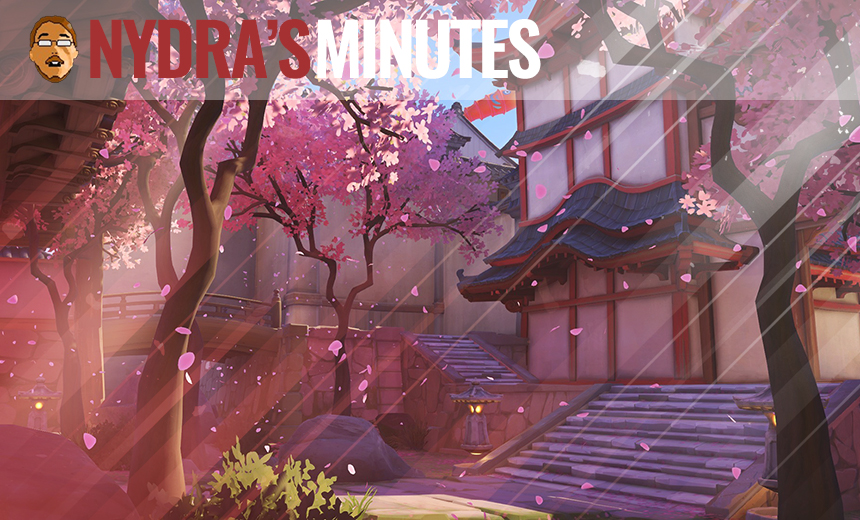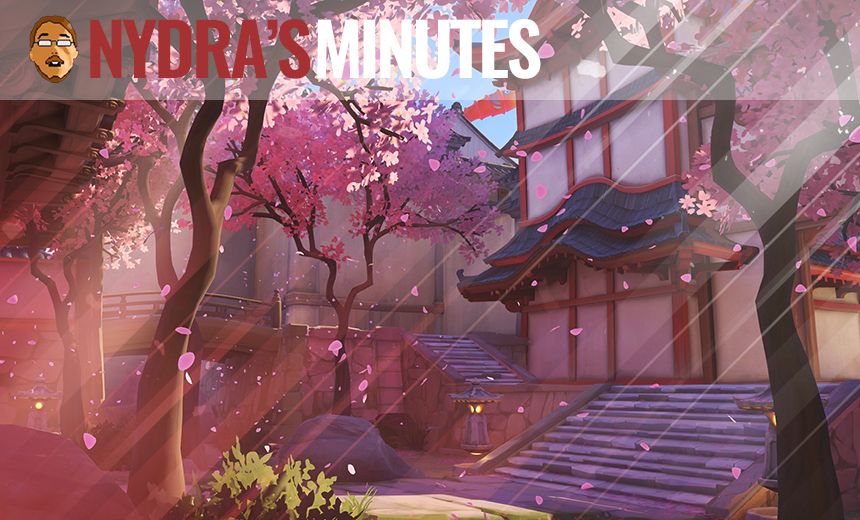
To the disappointment of western fans, the foreign teams flopped at APEX Season 2. Three of them were eliminated in the group stage after finishing with negative scores. Only EnVyUs qualified for the round of eight as the second seed behind Meta Athena, and Cloud9 came really close only to lose the direct encounter tiebreaker against Afreeca Blue.
The elimination of the western teams—let's call them NA for convenience because even Misfits are now under American sponsorship— has been perceived as a major upset. In season one, three of the four foreign teams qualified for the playoffs, stomping through the inexperienced South Korean scene with nV blowing out Afreeca Blue in the finals on a blank score. Even though a handful of Korean teams showed promise and talent, the eastern scene was visibly behind the West, which had been practicing Overwatch since day one. While a closing of the gap was normal with the growth of the Korean scene, the total defeat of the game’s pioneers came as a shock.
A common line of reasoning—one expressed by NRG support Alex “Ajax” Jackson in a recent interview for EsportsHeaven and supported by a number of professionals working in the Overwatch scene—blames APEX’s arguably poor map selection process, and particularly the enforcing of two-capture-points assault maps (2CP) such as Hanamura or Temple of Anubis as a mandatory third map in every series (APEX games are always best-of-five). This perception has also skewed how the West appraises the strength of the Korean teams.
Assault maps were neither the only, nor the biggest problem for NA.
“I actually think the Koreans are really overrated,” Ajax said in the interview. “Don’t get me wrong; I think the Koreans are good, but everyone seems to think that Koreans are invincible and just can’t be stopped. One of the big factors [why] Koreans were so dominant in this APEX was because NA just couldn’t win on 2cp. NA had something like a below 15% win rate on that map type, and it’s largely because NA teams still don’t scrim the map type almost at all. NA teams were used to map bans for so long where 2cp was almost a non-factor that no one practiced it, where in Korea you are forced to play it in the 2nd map of a best of 5. These Korean teams are months ahead of NA on practicing these maps. NA is currently forced to play 2cp in tournaments, and some teams STILL don’t want to practice it.”
On the face of it, it’s hard to argue with Ajax. The Koreans are definitely not invincible and can be stopped. A handful of Korean teams have glaring flaws in their raw mechanics and fundamentals, or are much too reliant on a single star carry. It's also true that the 2CP map mode was also heavily in favor of Korea this season, winning 12 out of 14 maps in that mode.
Although that’s a scary statistics for NA, it doesn’t tell the full story, and deeper analysis of the season two numbers gives a broader perspective on why North America lost the Korean major.
1. NA wasn’t just unfavored on 2CP
The map mode order in APEX is fixed and each best-of-five series (the format for the group stages and the round of eight) it goes like this:
- Game 1: Control
- Game 2: Hybrid
- Game 3: 2CP
- Game 4: Payload
- Game 5: Hybrid
Since every best-of-five goes to at least three games, playing the maligned 2CP mode is obligatory as the third map, but it's neither NA's only, nor its biggest problem. Consider these statistics, taken from Season 2:
- NA is 5-9 on control maps
- In all 9 matches NA lost, it always lost round 1 of control
- Only 4 out of 14 matches went to 3-1 or 3-2 in favor of Korea
- Only 2 games went to 3-2, where 2CP actually decided the series' outcome
Therefore, we end up in a situation where NA is essentially behind in half of the game modes and 64% of the time the foreigners started a series down 0-1, which is arguably even more detrimental (as obvious from the bulletpoints above) since whoever wins the opening game is ahead in the map-countering loser-picks-next format of the tournament.
Here, one can argue that several of APEX’s oddities come together to make for a hostile environment for NA. First, control maps are played in best-of-three instead of traditional best-of-five, which is what NA would have practiced. Second, both control and 2CP were mandatory for each series, played as first and third map respectively, which would mean being unfavored on these modes would put a team in a severe disadvantage before the mid-point of a best-of-five.
Putting heavy blame on 2CP, however, is somewhat of a tunnel vision, considering how often the mode decided the outcome of a series. To complement the previous batch of bulletpoints:
- NA has suffered 5 0-3 losses, meaning they didn’t only lose the 2CP mode and the control mode, but also hybrid mode, something they’ve been practicing extensively since the dawn of the scene.
That’s a statistic that’s not being talked about at all, which is unfair considering…
2. NA was heavily favored on payload and hybrid but didn't make use of it
…which are also the modes that are played the most in a full APEX best-of-five.
Combined, NA holds a 16-9 record on these two modes against Korea, a respectable 64% which is also the same win-rate Korea has on control maps. Granted, payload and hybrid maps were mostly played towards the tail end of the series in games four and five in addition to the mandatory map two which swayed the map mode advantage back in Korea’s favor but were NA able to put up an acceptable control mode performance, they would've found more success in the league. A positive, or at least neutral, control map record coupled with that 64% win-rate on payload and hybrids could have resulted in more NA teams surviving the group stage.
Only, there’s another frightening statistic which shows weakness in NA’s shell. Examining series' scores just before the dreaded 2CP in game three shows that:
- 6/14 times the score was tied 1-1
- 3/14 times NA was ahead 2-0
- 5/14 times Korea was ahead 2-0
Simply put, in spite of being heavily proficient and more experienced than Korea on the core payload/hybrid maps due to their heavy prevalence in western Overwatch tournaments, in more than a third of the games they played against Korea NA didn't only lose the control map, but the hybrid map of their choice, too. Furthermore, only half of the teams achieved a positive win rate across these modes. EnVy finished with a combined 7-3 on payload/hybrid and Cloud9 had a combined 5-2, leaving Misfits and Fnatic at a neutral 2-2.
When the NA's performance on their preferred map mode is unconvincing, could one really argue that 2CP was the mode that decided the tournament in favor of Korea?
To summarize thus far:
- NA heavily lost 2CP at 2-12
- NA also lost control at 5-9
- NA won payload and hybrid (combined at 16-9) but:
- The majority of these wins were achieved by nV (7) and Cloud9 (5)
- Fnatic and Misfits had neutral 50% on payload/hybrid maps combined
These numbers already present an argument against the 2CP apologism, but raw data is merely the building blocks of an analysis and one must ask the question why are we observing these numbers in the first place.
In the case of APEX Season 2, the answer is likely a very simple one, namely:
3. Korea was just better prepared
Korean pro-gaming has long been defined by impeccable practice discipline. The culture of being the best in an esport dates back to days of BroodWar but has since transcended the father of the industry and is now evident in some modern scenes, League of Legends, Heroes of the Storm and StarCraft 2 included.
It’s naïve to think Korean players are better at video games from birth, but they certainly grow to outperform other regions due to their vigor and dedication. The region has pioneered multiple methods now considered staple across all esports, including the employment of coaches and statisticians, gaming houses, sister teams for scrimmage purposes and if trends across multiple esports are to be believed, Korea will remain unmatched in this regard for the years to come.
Korea significantly deepened its hero pool.
If we’re to return on APEX topic, however, it’s obvious that NA lagged behind in more ways than just 2CP inferiority. The format of the tournament remained unchanged from season one and Blizzard has been adamant about keeping 2CP and control maps in rotation, so there is little excuse to be so unpracticed on half of Overwatch’s competitive modes. NA needed to adapt to the reality of the situation quicker instead of stubbornly grinding King’s Row and Eichenwalde like there’s no tomorrow. Even if Korea did theoretically have more time and desire to practice 2CP maps, a drop from 53% win-rate in the mode in season one to mere 14% in season two is simply inexcusable for NA.
If what Ajax says about western teams' unwillingness to scrim 2CP is true, than NA deserves elimination for more reasons than just being bad at those maps.
Additionally, weak 2CP and control numbers point to another potential problem for NA: That of inferior communication. Both modes are characterized with ongoing 6v6 fights, which require impeccable synergy across the entire squad, with Korean teams just seemingly better coordinated. This has made up for those Korean teams who haven't achieved the high mechanical proficiency that western players the likes of Kevyn “TviQ” Lindstrom, Jonathan “ HarryHook” Rua or Timo “Taimou” Kettunen have.
Korea also significantly deepened its hero pool, which eliminated to some extent the lack of flexibility it displayed in season one when the hosts struggled to figure out a counter to EnVy’s triple/quad tank compositions. All current APEX semi-finalists have players proficient on five, six or more heroes, to the extent where Meta Athena’s flex Hye-Sung “ Libero” Kim has played 13 different heroes on every single role—more than half of Overwatch’s total hero pool.
Finally, NA lacks a proper league to look forward to and practice specifically for, like Korea does. The infrastructure around APEX with the accompanying challenger league caters to Korean teams, while western ones rely on invites. There's no guarantee that a foreign team will be invited for the next APEX season, seeing how only EnVy secured a spot in season two, despite Rogue and REUNITED reaching the quarter finals. APEX features a prize pool of over $200,000 and since OW Open ended in September nothing in the West has really come close to Korea's major. The closest foreign tournaments have come have been the Overwatch Winter Premiere, which featured none of the NA teams competing in APEX Season 2 and the weekend-long MLG Vegas, both at half the prize pool of APEX.
So no, NA’s problem wasn’t just their abysmal 2CP record—although that will have to be fixed if the region is to have a chance in future tournaments—nor was that even a major reason for NA’s elimination. NA were underprepared in several aspects and underestimated just how far Korea had come in the short 45 days between seasons one and two.
The Koreans aren’t immortal gods but if the western mentality doesn’t change, Overwatch will become their undisputed domain, just like many other games before it.

